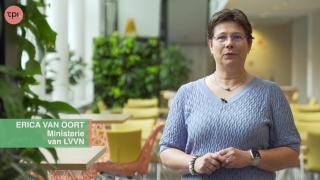Helpathon #4 - can you help Anne-Marie?
Can you help Anne-Marie develop a more organ-like Rhesus 3D liver model in which she can study the dormancy and the waking up of malaria parasites?
Join Helpathon #4, look at www.tpihelpathon.nl/coming-up !
Anne- Marie Zeeman is a researcher at the Biomedical Primate Research Center (BPRC). Anne-Marie studies recurrent malaria ( P. vivax). She successfully developed a single cell layer in vitro model to study compounds affecting dormant and active malaria parasites in the liver of Rhesus monkeys. We believe that the cross correlation between in vitro Rhesus and in vitro human models will provide the missing link required to improve the drug development process and aid transition. A more refined Rhesus in vitro model can reduce the number of monkeys currently used for testing drugs. The data from in vivo monkeys combined with new in vitro models could help validate and develop reliable human in vitro models making testing on monkeys unnecessary detours.
New

Helpathon #12 – Can you help Erica?

The NAM Navigator: A unique repository for information on the validation and acceptance of New Approach Methodologies
